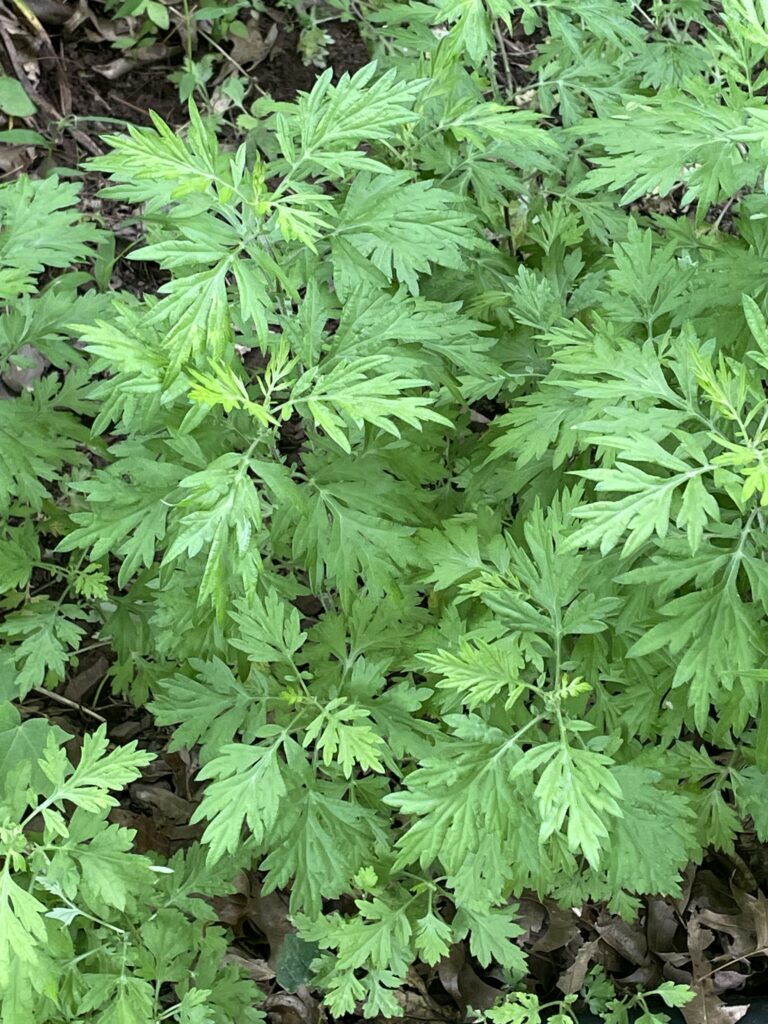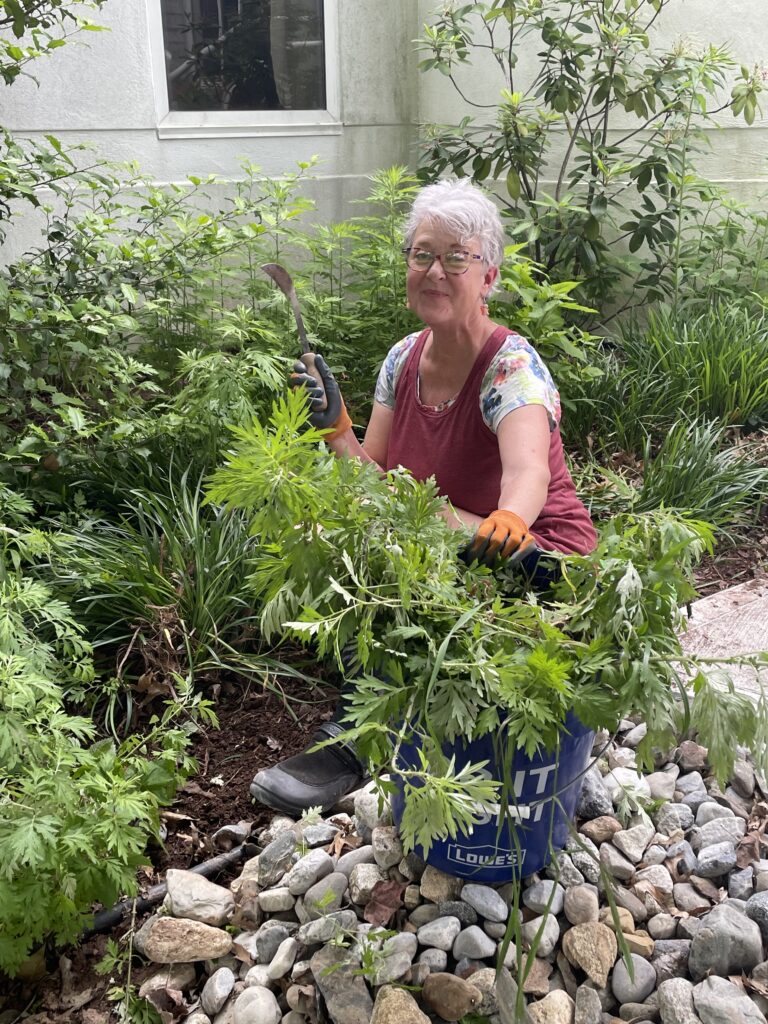by Barbara Drew, Co-chair, Earth and Climate Ministry
About five years ago we wanted to save a few special perennials from the garden area now making way for our exciting addition and new entrance! We transplanted the purple and yellow iris plants and a few others to the parking berms. Little did we know then that the aggressive weed “Mugwort” was hiding, embedded in the Iris rhizomes.
When transplanted to the loose, sandy soil of the parking berms, unimpeded by any other plantings, the Mugwort with its network of runner roots took off and spread vigorously – you might say it had a field day in the open soil!
Mugwort, Artemisia vulgaris, also known as Common Wormwood or Chrysanthemum Weed, is a perennial plant native to Europe and parts of Asia and Africa. Historically, it has medicinal uses in many parts of the world. If I were to design a sturdy plant, I think Mugwort would be a “good” example: have roots that spread out like spokes of a wheel to the sides as well as go deep; if the roots break, new growth and new leaves are stimulated; if another plant is in the way, just grow under and through it; grow tall and spread seeds; and look like another native (desirable) plant (the early leaves of Mugwort look like Chrysanthemum). When tall and blooming, it resembles Ragweed.
For the past five years, before the plant goes to seed, repeated weeding has been necessary to remove any remnants of the runner roots, which can look like a mass of spaghetti! We also planted other aggressive growers that are native with wildlife attributes: Mountain Mint is thriving and provides a lovely fragrance. As part of Earth Day in 2023, wildflower seeds were scattered by families and you may see wild California Poppies blooming along with Butterfly Weed, Coreopsis and Penstemmon.
Mulching spread by our Grounds Committee Co-chairs Bodo Baltycki and Denny Rodgers will help to reduce the Crabgrass and Mugwort and retain the moisture in the soil. Fencing may not be attractive, but given the extensive impact from deer browse, it has been necessary and will be in place until the shrubs are well established.
When you have a chance to visit and walk the church grounds, be sure to glance over at the “garden of weeden.” Meanwhile, Allie’s Garden, our veggie garden that provides produce for the Food Ministry has recently been prepped for planting.
If you are willing to help weed the parking berms to ensure better health of our intended native plants (Elderberry, Viburnum, Chokeberry and more), water, and weed the veggie garden in the summer, please contact earthministry@uucwc.org for more info.


